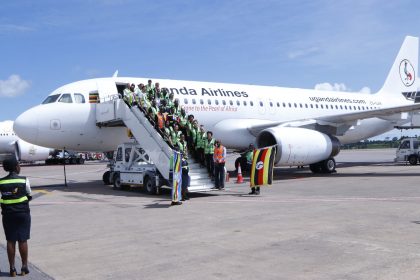Tewolde defends Ethiopian’s decision to keep China services open

Ethiopian Airlines Chief Executive Tewolde Gebre Mariam has defended the airlines decision not to suspend flights to China amidst the Corona virus outbreak, reasoning that the confirmation of Sub-Saharan Africa’s first case in Nigeria, vindicated the decision.
Most airlines in the region and other parts of the world have suspended services to China. But Ethiopian has maintained its 35 weekly flights between Addis Ababa and points such as Beijing, Shanghai, Guangzhou and Chongqing on the Chinese mainland.
Speaking March 4 during the fifth edition of the Aviation Africa Conference, Mr. Tewolde said the arrival of a Corona case in Nigeria from Italy, validated Ethiopian’s conviction that direct flights on their own, were not an automatic pathway for COVID-19 into Africa.
“Flying to China does not necessarily mean that we are going to import Corona because passengers from China can still get to Africa through other hubs,” Tewolde said.
“Nigeria does not have any airline flying to China and yet a case managed to get there. It is also unethical to isolate China just because they have got this problem,” he added.
Practical considerations
The other imperative was business sense amidst increasing uncertainties he said. Tewolde reported a 20 percent drop in passenger demand across the board that he attributes to the COVID-19 crisis. On the other hand airlines are facing increased costs because of widening conflict across the world.
“With 130 aircraft, we have to worry about safety, economics and labour. Also, every month you have to see if you have enough money to run the airline. The number of places we cannot overfly because of conflict keeps increasing. All our flights from Addis to China cannot fly over Kashmir. And yet we cannot pass the additional cost of the detours on to the passenger,” he said.
WHO recommendations
The World Health Organisation says restricting movement of people and goods during public health emergencies “is ineffective in most situations and may divert resources from other interventions.
“Furthermore, restrictions may interrupt needed aid and technical support, may disrupt businesses, and may have negative social and economic effects on the affected countries.”
Since January 24, Ethiopian Cargo has flown more than 1500 tons of medical supplies essential to preventing spread of COVID-19.
The WHO says that keeping the public informed about preventive measures that can be implemented at a personal level is more effective in preventing spread than travel bans or screenings at departure and arrival points.
IATA says it has worked with airlines and other stakeholders such as the WHO, the Centre for Disease Control and the International Civil Aviation Organisation to ensure safe travel.
“We have a public health emergency, and we must try everything to keep it from becoming an economic crisis,” says IATA Director General and Chief Executive Alexandre de Juniac.

 Brussels Airlines to announce Nairobi service
Brussels Airlines to announce Nairobi service
 SITA promises enhanced travel experience after Materna acquisition
SITA promises enhanced travel experience after Materna acquisition
 Saudia’s 105 aircraft order stretches A320neo lead over rival Max
Saudia’s 105 aircraft order stretches A320neo lead over rival Max
 Boeing refuses to pay hackers $200 million for stolen Data
Boeing refuses to pay hackers $200 million for stolen Data
 Uganda-Tanzania announce date for second joint business forum
Uganda-Tanzania announce date for second joint business forum
 Uganda Airlines leased A320 arrives in Entebbe
Uganda Airlines leased A320 arrives in Entebbe
